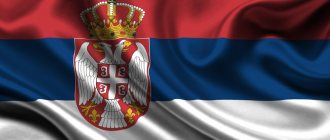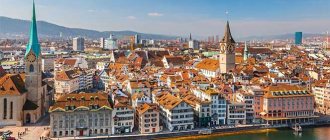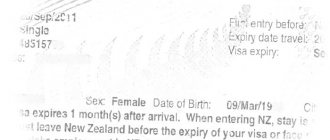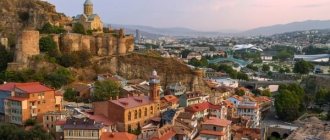Salary in riot police in 2019-2020
As you know, each job has its own value and is paid in proportion to the time and labor spent. But sometimes work is not only a waste of labor and time, but also a constant risk to life and health. There are few such areas, in particular, employees of the Ministry of Emergency Situations or security services.
Ordinary people are often concerned with the question: how much do they get paid? Is it probably a lot? For example, the work of riot police officers is directly related to the risk of life; not everyone will decide to join this security force.
So what kind of monetary reward do they receive for risking their lives every day? OMON was formed in the USSR, at the very end, the organization had several names, including “Special Purpose Police Detachment”; after the change from the police to the police, the structure slightly changed its name. But the essence remains the same - to ensure security in high-risk areas, for example, during civil unrest, terrorist threats and other unrest that in one way or another threaten stability in the country.
OMON is a developed security structure, currently includes more than one hundred and sixty units and more than forty thousand fighters.
Despite this, there is always a shortage of personnel in OMON units; even on Internet bulletin boards you can find official offers to join the OMON. The requirements for riot police officers are quite simple for those who want to build a career as a military personnel.
Good physical characteristics: height 175 and above, strong physique, high level physical fitness, completion of compulsory military service, age up to twenty-five years.
In addition, it is necessary to submit a certificate of no criminal record, absence of administrative fines and arrests to the police, references from the educational institution and from the previous employer.
- cross-country with a distance of three kilometers in eleven minutes and forty-five seconds;
- pull-up or bench press if the weight category is above ninety-five kg. Press the biceps ten times, the weight of the barbell is at least fifty kg. Jumping up from a sitting position;
- push-ups with emphasis on various types of hands. Press lying down, without arms;
- transition from a lying position facing the floor to a “sitting upright” position by flexing and extending the legs;
- all exercises must be performed clearly and quickly according to established standards. Passing points are awarded for each correctly completed exercise. When the required number of points (from three hundred seventy-five) is collected, the exam is considered passed. After this, the fighter must undergo a medical commission and a medical and psychological examination.
Society has a reprehensible opinion about riot police officers due to the specifics of their work.
It is believed that they earn exorbitant sums and enjoy various benefits that are not available to the average person.
However, this is just a myth; the salary of an ordinary riot policeman and even a freeman is quite modest. The salary of a riot policeman consists of many factors, including regional. That is, the level of wages varies depending on the region where the riot police soldier serves. For example, in Moscow, the salary of riot police is several times higher than in the regions - there are significant bonuses.
In the regions this figure was lower, about fifteen thousand rubles.
This deplorable situation continued until 2021. In 2021, the salary of a riot policeman was doubled and amounted to fifty-five thousand for Moscow and thirty for the regions.
In addition, in 2021, funds were allocated to provide incentive bonuses to those fighters who participated in the suppression of unrest in Moscow that same year.
By the beginning of 2021, an employee’s salary in Moscow was up to seventy thousand rubles, thirty-five for regional divisions.
These are official salary amounts, excluding bonuses and incentive payments.
The deputy commander of a riot police company also receives additional payments and allowances; his salary rises to one hundred thousand rubles in the capital region.
Currently, there is a trend to strengthen national security, increase its level and, accordingly, increase salaries and additional payments. These expenses are included in the three-year budget and are awaiting adoption in the first reading of the State Duma.
Salary of riot police officers in Russia
OMON is a security unit that until 2021 belonged to the structure of the Ministry of Internal Affairs, is currently part of the Russian Guard.
Soldiers of the units ensure security during cultural events, take part in arrests of especially dangerous criminal elements, and go to “hot spots.” The professional activities of the employees of this unit involve a risk to life, so let’s try to figure out how much riot policemen receive for their dangerous service.
Considering the specific nature of the activity, not everyone can join the OMON service. Quite stringent requirements are imposed on candidates.
For example:
- good physical fitness;
- absence of chronic diseases;
- no criminal record;
- stress resistance;
- knowledge of self-defense techniques (welcome);
- recommendations from current employees or from a previous place of duty (preferably).
Applicants are required to undergo a medical examination and take physical fitness tests.
The salary of the command staff of the unit is significantly higher. Note that just a few years ago, work in the riot police was considered prestigious, but low-paid. Employees working in the capital received an average of 25,000 rubles, plus combat allowances for business trips to the North Caucasus. In the regions, the situation looked even sadder, and here the average salary of an OMON police officer varied within 15,000 rubles. In addition, the indexation of salaries of law enforcement officers has been frozen since 2012. The situation began to change for the better only in 2021, when The average payments to riot police officers, taking into account all allowances and additional payments, amounted to about 55,000 rubles.
Salary differences by region
So, ordinary employees of the capital's riot police receive about 55,000 rubles.
Let's see how things are in individual regions:
- Khabarovsk Territory - 60,000 rubles;
- Irkutsk region - 50,000 rubles;
- Tatarstan - 52,800 rubles;
- Tver and Smolensk region - 39,900 rubles;
- Kirov region - 30,000 rubles.
The unit's fighters do not always serve in urban environments, and in recent years they have often gone on business trips to the republics of the North Caucasus. During this period, the employee’s salary increases by 100% for special conditions of service.
Dependence of salary on length of service
In addition to salary, riot police can count on the following payments:
- premium;
- working with secret documents;
- regional coefficients;
- material incentives for success in service.
Non-material benefits include free medical care and vouchers to sanatoriums for all family members, preferential vouchers, subsidies for the purchase of their own housing. After the transition to the Russian Guard, riot police became an army unit, which, in addition to a change in status, implies an increase in salary. Funds have already been allocated to increase salaries for security forces, and already in 2021, indexation will be 4.3%.
In addition, pensions of military pensioners will be indexed by 6.3%.
Indexation of salaries of military and law enforcement officers
In 2021, the indexation of wages for law enforcement officers was carried out in January, but in the coming year this procedure will return to the old scheme. Let us note that the indexation of salaries of public sector employees is carried out in October. It is assumed that after the increase in official salaries, the salary in the Russian Guard will be:
- ordinary personnel - up to 35,000 rubles;
- non-commissioned officers - up to 96,000 rubles;
- officers - up to 125,000 rubles.
Let us note that even the salaries of the leadership of the Russian Guard are not disclosed.
How much do special forces police officers earn in other countries?
Many people see the work of foreign special forces in Hollywood films and European TV series. But how much do employees of such departments actually earn and how can one get a job in such a structure?
Salaries of special forces police officers in EU countries
In Germany, police special forces are called GSG (Grenzschutzgruppe). This service is paid better than the police. However, the size of the salary is also influenced by work experience, as well as marital status; in addition, much depends on the region of service. On average across the country, special forces police officers earn about 3,500 euros per month. At the same time, in East Germany, for example, Saxony, salaries are lower - up to 3,400 euros, and in Berlin - just under 3,000 euros. In West Germany, wages are higher. Also, those employees who are married and have children receive a bonus, which is generally logical, given the dangerous nature of the work. On average, such employees receive approximately 400 euros per month more. Accordingly, in Saxony the salary is 3800 euros, in Berlin – 3400 euros, etc. In addition, special forces police officers have additional payments that are awarded to them for participating in special operations. According to statistics published by the police union, the amount of such payments can range from 150 to 400 euros per month.
In France, special forces are part of the National Police (not the Gendarmerie). Salaries here are almost the same as for other police officers of the same rank. On average, it ranges from 3,100 to 3,700 euros, which is even less than the national average salary. The gendarmerie also has its own special forces, but in Russia it corresponds not to OMON, but to SOBR.
Other professions: How much do investigators from different departments earn?
American police special forces
In the USA there are so-called SWAT units - Special Weapons And Tactics. These are special forces that are used in high-risk operations - where ordinary police officers cannot cope with the situation. At the same time, SWAT in its functions corresponds to two Russian units at once - this is OMON and SOBR at the same time. Indeed, just look at the functions of the unit - rescuing hostages, ensuring security during state-level visits (special forces must secure the perimeter from snipers), supporting raids conducted by police units to combat drug trafficking, and fighting street riots.
It's almost impossible to get into SWAT just like that. The personnel of these units are recruited from volunteers from other police departments. Of course, each department may have its own additional requirements, but in general, candidates are required to go through a police academy and then serve some time in their departments. This requirement is quite logical, since special forces are still law enforcement officers, and they are required to have the same knowledge and skills as other police officers, plus special skills.
Special forces soldiers undergo a special course, after which they pass qualifying exams. They quite logically include passing standards for shooting accuracy, hand-to-hand combat, physical training, and the exams also include testing tactics for rescuing hostages and the basics of sapper training. But there is another specific exam in psychology, during which the candidate must demonstrate the ability to persuade (and we are talking not only about criminals who have taken hostages, but also about suicides, since in the United States special forces are engaged in such work). The salary depends on the region and on average it ranges from 15 to 45 dollars per hour, and the annual income of a police special forces officer is about 70 thousand dollars. However, he is entitled to the same health insurance benefits as employees of other police departments.
Pension after service in the riot police
To calculate and pay pensions to riot police officers, 1 year of service is counted as 1.5 years. Thus, a fighter can retire at 45 years of service.
The pension consists of three components:
- salary for the position;
- salary for a special rank;
- service life bonus.
To be dismissed due to retirement, an employee must contact the HR department at the place of duty and provide a package of documents:
- statement;
- service life calculation;
- conclusion of the IHC;
- other documents.
An exhaustive list of required documents is established by order of the Ministry of Internal Affairs of the Russian Federation dated May 27, 2005 No. 418. After checking all submitted certificates, a notice of pension assignment is prepared.
Additional benefits
The employees of the special police unit in question have additional advantages. In all regions of the country they are provided with hostel accommodation and temporary registration. In Moscow, housing rent is also paid. In addition, starting from 2021, you can take part in the military mortgage program on an equal basis with members of the armed forces. You just need to clarify the conditions of this program.
Secondly, riot police officers have the right to early retirement after 13 years of service. Since at the same time employees still have the opportunity to obtain higher education (for example, law), he can continue his career. In addition, riot police are given a fairly long leave of absence from 38 to 53 days.
It should be noted that similar things are practiced in other countries. For example, in Israel, special forces employees receive compensation for both rent and utility costs. In some cases, travel expenses are paid if the employee's family lives in another city. Salaries in other countries will be discussed below.
Other professions: How much does a local police officer earn?
Advantages and disadvantages of work
Like any other profession, the work of riot police has its pros and cons. Negative points include:
- irregular working hours;
- risks to life and health;
- high physical activity.
At the same time, there are many more positive aspects. The main advantages of the service are:
- stable salary;
- free medical care;
- extended period of annual leave;
- special mortgage lending programs;
- benefits in the social sphere.
In addition, this profession is widely in demand in the Russian Federation. As of April 16, 2021, 63 vacancies are open for the fighter profession, most of which are in Moscow and the Moscow region. In addition, riot police retire earlier than civilian workers, and pensions themselves are higher than the national average. It should also be taken into account that pensioners are entitled to a Muscovite social card.
Riot policeman
A riot policeman is an employee of a mobile special forces detachment, a police officer trained to work in “hot spots.” Before the militia was renamed the OMON police, it was a special police unit. Today this abbreviation is filled with new content: OMON has become a special mobile detachment. But the essence of the work of a fighter in this detachment remains the same.
The riot police are not involved in solving crimes; their task is to maintain law and order and suppress riots. For example, if there is an earthquake, forest fires or hurricane, riot police protect public safety in disaster zones. In particular, it stops looting in abandoned houses.
Another important task of the detachment is to provide combat cover for other police officers.
Therefore, riot police take part in neutralizing armed criminals, freeing hostages, suppressing prison riots, etc. As the name suggests, this unit is distinguished by its mobility and readiness to work in emergency situations. This profession is dangerous and requires serious training, dedication to one’s work and comrades. Riot policemen often die while carrying out missions.
Those who have attended protest demonstrations or observed mass civil actions via the Internet may ask: “What are riot police doing at protests? Are we talking about mass unrest? The riot policeman has a short answer to this question: “We keep order.” When many people get together, it is fraught with surprises - from accidents to provocations.
A member of the mobile squad can be identified by the large yellow inscription “OMON” on his spotted uniform and black beret.
During mass actions, fighters wear special protective helmets, which is why they are also called “cosmonauts” and even “real cosmonauts.” What real real astronauts think about this, we don’t know. Riot police officers stand in a cordon, allowing participants into the rally area strictly through special “gates” with metal detectors.
If a conflict situation is brewing, the fighters react quickly and harshly: wielding batons, they force the protesters out of the protest area or, conversely, cut off the instigators and encircle them.
They help colleagues from the operational squad make arrests.
According to participants in the events, it happens that a “conflict situation” arises precisely as a result of the actions of the police themselves.
Therefore, the attitude towards riot police in society is ambiguous. Of course, to do this kind of work, a fighter must be sure that the truth is on his side. Otherwise he will feel like an enemy of his own people.
Riot policemen work on shifts. They devote a lot of time to physical training and tactical training. Since 2002, on October 3, riot police officers have celebrated their professional holiday. OMON is a police unit. This means that the riot policeman himself is a policeman. The profession of a riot policeman presupposes good health, serious physical training, responsibility, courage, and devotion to comrades.
A riot policeman must master hand-to-hand combat techniques (in particular, with a knife), shooting, collective action skills, etc. Each region has its own special purpose mobile detachment. To become a riot policeman, you need to enlist in this detachment.
As a rule, they accept men under 35 years of age who have served in the Army and have a secondary education. Upon admission, a physical fitness test is carried out: cross-country, push-ups, pull-ups, etc. And also hand-to-hand combat for endurance.
Anyone who passes the test undergoes three months of study and a qualifying exam.
How to get into the riot police after the army - action plan
Having made a firm decision to enlist, the newcomer goes straight to the unit commander. If the candidacy is in demand and there are no special objections from management, you are sent to the regular personnel department, where you fill out a questionnaire, write an application, etc.
The second stage is passing the standards. For a person who regularly attends sports training, there is nothing special in the standards:
- 3 km in 13 minutes;
- 60 push-ups;
- 60 abdominal exercises;
- Pull-ups – 18 times.
Well, a couple more simple exercises. The main thing is endurance. But no one canceled his fighting qualities. Most likely, sparring is inevitable.
If you go to work in a law enforcement unit, you need to understand that being able to fight is a prerequisite. In general, the internship takes no more than 6 months.
Go through a medical examination, take tests, collect signatures - the usual routine. Take the mandatory psychological test and get acquainted with the polygraph. If everything is in order, you are sent to a special educational center (training) for a period of six months.
Salary in riot police
The specific amount, depending on the position held, is set at the federal level and cannot be changed.
Allowances for length of service and for class are calculated based on the actual amount of salary, and amount to 40 and 30 percent, respectively. This is the maximum possible increase in payments with long experience and the highest class. Allowances for secrecy and for special conditions of service are not assigned to all riot police officers.
Only persons who have access to information classified as state secrets and who have difficult working conditions can count on additional payments. The maximum increase in the main rate, in this case, can range from 65 to 100%.
In addition to the basic salary rate and additional payments, deductions in the form of bonuses, additional payments for outstanding achievements, and awards are also possible. Mainly soldiers who have served for a long time in this unit of the Russian Guard can count on significant bonuses.
Salaries of special forces soldiers in other countries
The salary of Russian special forces is almost equal to the salary of riot police in other countries.
German special forces soldiers earn the highest salary among all NATO military structures. For them, the size of the salary is also determined by the presence of a family. For the most dangerous tasks, the employee is paid a separate bonus. The authorities can also pay for the fighter to get an education. The average salary of an ordinary soldier in Germany is about $1,600, and that of a lieutenant is $3,000.
And anyone can serve in the French Legion, regardless of citizenship, nationality, race or religion. The authorities provide special forces with free housing and food. The salary of an ordinary special forces soldier in France is at the level of $1,700, and for an employee of a higher rank - about $3,000.
Salary of a riot police officer in Russia in 2021
OMON is a developed security structure, currently includes more than one hundred and sixty units and more than forty thousand fighters. Despite this, there is always a shortage of personnel in OMON units; even on Internet bulletin boards you can find official offers to join the OMON. Main functions of riot police
- Elimination of criminal groups, terrorism.
- Ensuring the safety of citizens in disaster zones.
- Release of persons taken hostage.
- Suppressing prison riots.
- Participation in demonstration events (parades, shows, etc.).
- Neutralization of criminal authorities.
- Suppression of looting.
- Preservation of internal order in Russia.
- Age from 25 years.
- Good physical fitness.
- Stable psyche.
- Strong build and tall.
- Good tactical preparation.
Income of fighters in various regions of the country
The Russian authorities are constantly interested in how much riot police are paid and are considering raising the salaries of special police units. In 2021, the salary of an ordinary riot police officer is about 30 thousand rubles. Fighters of a higher rank receive an average of 60 thousand.
| Region of Russia | Monthly salary (thousand rubles) |
| Moscow | 50-70 |
| Podolsk | 38 |
| St. Petersburg region | 40-70 |
| Krasnodar | 30 |
| Voronezh region | 55 |
| Chelyabinsk | 35 |
| Republic of Mordovia, Atyashevo | 40-55 |
| Ryazan | 40-55 |
| Vladimir | 50 |
| Belgorod region | 70 |
| Samara Region | 30-40 |
| Sverdlovsk region | 40-60 |
| Nizhegorodsk | 40-60 |
| Karelia | 40-60 |
| Pskov | 40-60 |
| Bryansk | 40-60 |
| Arhangelsk region | 40-60 |
| Tver region | 40-60 |
| Novosibirsk | 40-60 |
| Rostov | 40-60 |
| Tambov region (sniper) | 55 |
| Belgorod (sniper) | 55 |
| Penza (sniper) | 55 |
| Orlovsk (sniper) | 55 |
| Tver (sniper) | 45 |
| Orenburg (sniper) | 45 |
What factors determine a fighter's salary?
The salary of a riot policeman depends on many factors, the main of which are:
- the region where a riot police officer served (in the Moscow region, for example, a soldier’s income is approximately one and a half times higher than in other regions of the Russian Federation);
- rank received in the army;
- complexity of the assigned task (secret operation / dispersal of demonstrations / elimination of a criminal authority);
- work experience in the riot police.
All these factors make up the fighter's future monthly salary, to which bonuses and allowances are also possible.
How much does a riot policeman earn on average: the difference between Moscow and other regions
The average salary of a riot policeman in Moscow and the Moscow region ranges from 50 to 70 thousand rubles. In the regions, wages are lower and range from 35 to 45 thousand rubles. This is only a thousandth of Mayweather and McGregor's fees for the fight .
In addition to wages, in some regions of Russia bonuses from local authorities are established, in which case the wages will be higher.
Additional incentives may be paid for completing special tasks at the discretion of the government. So, in 2012, almost 3 billion rubles were allocated from the Moscow budget for bonuses to riot police who took part in maintaining law and order during rallies . The salary of a riot policeman is not as high as many Russian citizens think. It is ten times lower than the salary of Russian ministers. Additionally, you can see what the salary of football player Artem Dzyub is.











